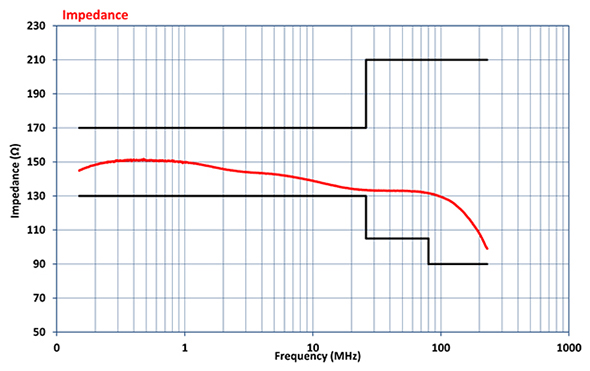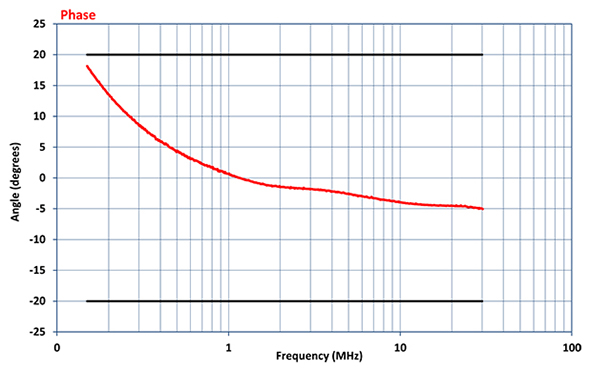Overview
The Com-Power CDN C75E is used on coaxial lines with a nominal transmission line impedance of 75 ohms. The EUT and AE Ports are fitted with female, 75Ω BNC-type coaxial connectors. The RF Port is fitted with a female, 50Ω BNC-type coaxial connector. The outer surface of the network’s metallic enclosure is powder coated for durability, and is mounted onto, and internally bonded to, an untreated (conductive) stainless steel base plate. The base plate extends beyond the footprint of the network enclosure at the front and back, providing convenient access to effectively ground the network, which is essential for proper operation.
Flexibility (CDN or ISN)
The CDN C75E is intended for use as either a CDN for conducted immunity testing per IEC 61000-4-6, or as an ISN for conducted emissions testing per CISPR 22/32. It meets all applicable requirements of these standards for each test, as well as those contained within CISPR 16-1-2.
Conducted Immunity Systems
Any individual Com-Power CDN may be purchased separately, or as part of a CIS series Test System. Test systems also include an ACS series power amplifier (25W, 50W or 100W), directional coupler, power attenuators, two 150Ω to 50Ω adapters, 50Ω termination, common-mode adapters, cables and automation software.
Calibration
The CDN C75E is individually calibrated for all necessary performance parameters with NIST traceability. The calibration data and certificate is shipped with each network. Recognized ISO 17025 accredited calibration is also available upon request.
Application
The CDN C75E is suitable for conducted emissions and immunity tests on signal/telecommunication ports intended for connection to coaxial lines with a nominal transmission line impedance of 75 ohms.. During emissions testing, an ISN provides:
- a means by which to measure spurious common-mode noise from the EUT, present on the line under test; and,
- common-mode isolation between the EUT and AE, minimizing the affects that any spurious noise generated by the AE may have on the measurement.
Conversely, CDNs provide what are essentially the same functions during immunity testing, but from the opposite perspective:
- a means of coupling RF common mode signals on to the line(s) under test of the EUT; and,
- common mode isolation between the EUT and AE, minimizing AE exposure to the injected RF test signal.
Prior to the immunity test, CDN drive levels are established at each test frequency by adjusting the power level being applied to the RF Port until the appropriate voltage (Umr) is measured at the output of the 50Ω to 150Ω adapter connected to the EUT port. It is important to note that the test levels in IEC 61000-4-6 are open circuit voltage levels (Uo). The test level (Uo) has been achieved when the corresponding Umr value is measured; not the Uo value.
The relationship between Uo and Umr is:
Umr (Vrms) = Uo (Vrms) / 6; or,
Umr (dBμV) = Uo (dBμV) - 15.6 dB
So, for Level 3, where: Uo = 10 Vrms (140 dBμV),
Umr = 1.67 Vrms (124.4 dBμV)
Typical Data
 Com-Power CDN-C50E Impedance |  Com-Power CDN-C50E Phase |
.JPG) Com-Power CDN-C50E Voltage Division Factor (VDF) | .JPG) Com-Power CDN-C50E Decoupling Attenuation (Isolation) |







